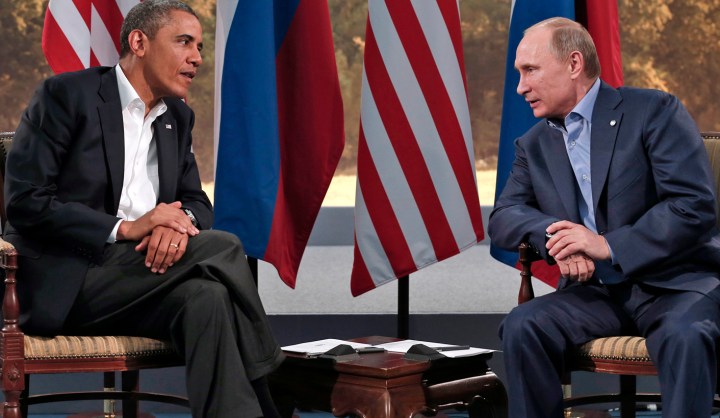World
US condemns Russian move to annex Crimea

The White House on Tuesday condemned Russian President Vladimir Putin's annexation of Crimea from Ukraine and said it was preparing a fresh round of sanctions in response to the worst East-West crisis since the Cold War. By Susan Heavey and Steve Holland.
“More is coming,” said White House spokesman Jay Carney, a day after the United States slapped sanctions on 11 Russian and Ukrainian officials, penalties that some critics said did not go far enough to get Moscow’s attention.
As the United States and European allies seek coordinated responses to pressure Russia, President Barack Obama and the leaders of the other six Group of Seven (G7) economies scheduled a meeting at The Hague next week to discuss Ukraine on the fringes of an already scheduled nuclear security summit.
The White House said in a statement the G7 meeting will focus on further steps that the grouping may take to respond to developments and to support Ukraine.
Leaders of the G7 – representing the United States, Germany, Britain, Italy, France, Canada and Japan – have already suspended preparations for a June meeting in Sochi, Russia, at which Putin would have served as the host.
The Sochi summit is now deemed unlikely to take place and there is even speculation the G7 could move to expel Russia from the G8 after Putin signed a treaty making Crimea part of Russia, an outcome that Washington condemned and said would never be accepted as legal.
Carney, briefing reporters at the White House, strongly hinted that subsequent rounds of sanctions in response to the Crimea move could include some of the powerful and wealthy oligarchs who have close ties to Putin. The first round of sanctions on Monday hit two Putin aides.
“I think anyone who understands how the Russian system of governance works and who has influence in that system understands the kind of person that we’re talking about here, and the fact that they have substantial assets, not just in Russia, but abroad,” he said.
Putin’s refusal to back down from his move on Crimea has presented Obama with another difficult foreign policy challenge, trying to reason with a Russian leader who seems determined to test the boundaries of his regional influence.
While Washington has vowed to pursue the diplomatic option over Ukraine, it has a collective defense agreement with members of NATO, including Russia’s regional neighbors like Poland and Lithuania, which Vice President Joe Biden is visiting this week.
Under Article 5 of the NATO charter, members agree that an armed attack against one or more of their members in Europe or North America shall be considered an attack against them all.
“President Obama and I view Article 5 as a solemn commitment not only for our time, but for all time. We take it deadly serious and our commitment is absolutely unwavering and unshakeable,” Biden said in Warsaw.
The Obama administration’s response to the crisis has had its share of critics, who say they believe the White House needs to be more aggressive.
Representative Eric Cantor, the No. 2 Republican in the U.S. House of Representatives, said Obama should dramatically expand the number of Russians to receive sanctions and reassess U.S. policy toward Russia.
“Next week, the G7 leaders should decide to revoke Russia’s membership in the G8. The U.S. should assess what military support we can provide Ukraine and the U.S. must work in concert with its NATO allies to reassure other countries threatened by Russia,” Cantor said.
Republican Senators John McCain and Lindsey Graham noted that the head of Transnistria, the breakaway region of Moldova, had called for the region to be annexed by Russia.
“Through its weak and inadequate response to President Putin’s land grab in Ukraine, the West is in danger of acquiescing to Russian efforts to redraw the borders of Europe through military force,” they said in a statement.
The White House rejects the criticism that it is not doing enough, saying that Obama’s predecessor, George W. Bush, had a reputation for use of military force and yet that did not stop Putin from a military incursion into neighboring Georgia in 2008. DM
Photo by Reuters.



















 Become an Insider
Become an Insider